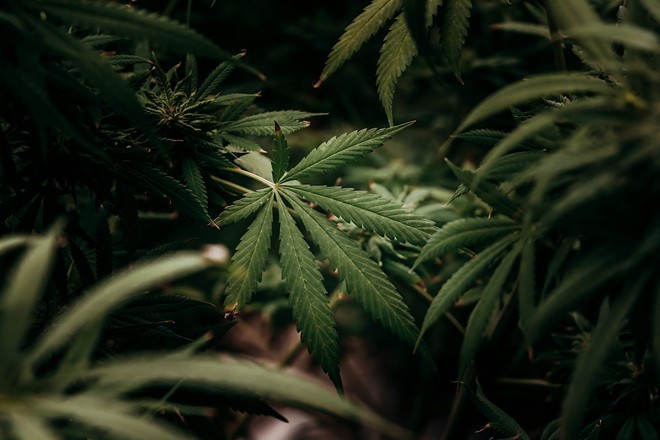
Using data from the federal Drug Enforcement Administration which tracks controlled substances across the U.S., the study looked at 11 states that had legalized adult-use cannabis between 2010 and 2019. Researchers found that there was a 26 percent reduction in “pharmacy-based distribution of codeine” and after four years many states experienced as much as a 37 percent reduction.
The study comes out as cannabis advocates urge the Texas Legislature to expand the state's extremely limited medical marijuana program to include patients with chronic pain. Those in favor of the expansion argue that it will help qualifying Texans find relief without accessing addictive and potentially dangerous opioids.
Codeine is an opioid, and prescription opioids contribute to more than 10,000 overdose U.S. deaths annually. But codeine is just one such opioid prescription, and the study found that marijuana legalization had “minimal impact on distribution of other opioids such as oxycodone, hydrocodone and morphine in any setting.” Plus, marijuana legalization didn't have an impact on hospital-distribution of codeine.
Researchers speculated that the pharmacy-based reduction is because codeine is a weaker opioid with a high potential for addiction. Since cannabis, like codeine, can help reduce chronic pain, its legalization can shift consumers away from opioid misuse and towards cannabis.
“A reduction in the misuse of opioids will save lives,” said Shyam Raman, a doctoral candidate at Cornell University and lead author of the study. “Our research indicated that recreational cannabis laws substantially reduce distribution of codeine to pharmacies, an overlooked potential benefit to legalizing recreational cannabis use.”
The study further confirms what other studies have found, that given the option, patients will often substitute marijuana for opioid painkillers. In 2019, the Journal of Pain came to this conclusion using online surveys submitted by adult cannabis users. When survey respondents were asked why they’d made the change, they sited fewer adverse side effects and more success managing symptoms.
Harm Reduction Journal published a similar study in 2019 that was based on a survey of 2,000 Canadian adult-use marijuana users.
This study is unique since it uses DEA data instead of survey respondents. The DEA data shows endpoint distribution of controlled substances — so whether the drugs ended up at a pharmacy, a hospital, a specialist, or a narcotic treatment program. The authors believe this is the first study of its kind to use the DEA data in this way.
As of November 2022, 21 states have legalized adult-use marijuana. Advocates said Texas is unlikely to join the crowd during its current legislative session.
This story first appeared in the Riverfront Times, an affiliated publication.
Coming soon: SA Current Daily newsletter. We’ll send you a handful of interesting San Antonio stories every morning. Subscribe now to not miss a thing.
Follow us: Google News | NewsBreak | Instagram | Facebook | Twitter














